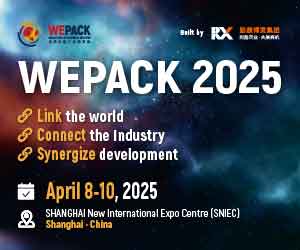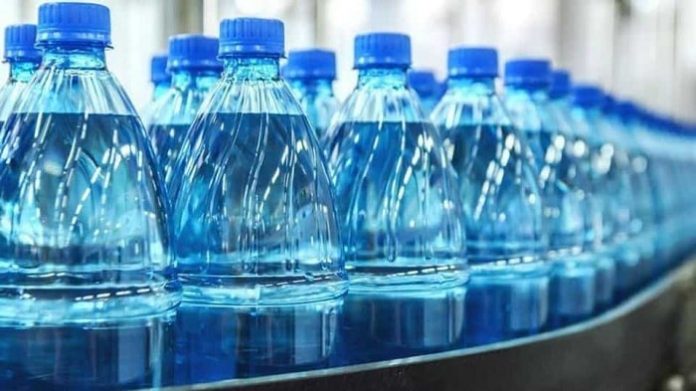CARBIOS, a company pioneering new, bioindustrial solutions to reinvent the lifecycle of plastic and textile polymers, announced it has successfully produced the first PET-bottles made with 100% Purified Terephthalic Acid (rPTA), through the enzymatic biorecycling of plastic waste. This major milestone is a world-first and confirms the potential of the company’s technology to engage the whole industry in a responsible transition towards a circular economy.
Alain Marty, Chief Scientific Officer at CARBIOS, comments, “We have successfully developed the first biological process with which all kinds of PET plastic waste can be broken down into its original components and reused to produce virgin plastic products for applications such as PET-bottles. This new step shows the strong potential of CARBIOS’ enzymatic technology and provides a breakthrough solution to help solve society’s growing waste problem.”
Previously, CARBIOS demonstrated that its proprietary biorecycling technology, based on the use of bioengineered enzymes, had the ability to turn PET plastic waste back into its original components at a rate of 97% in only 16 hours. It had also demonstrated that virgin PET can be made with 100% rPTA via its proprietary biorecycling process, which uses all kinds of post-consumer PET plastic bottles (clear, colored, opaque, complex). By demonstrating today that 100% rPTA can be used to produce
PET-bottles that match brand and customer requirements, this technology proves to be a potential game-changer in the transition towards a circular economy that will benefit the environment and future generations.
PET is the most common polyester on the market. It is used to produce plastic packaging, textile fibers, and nearly 500 billion units of plastic bottles each year[1]. It is a market expected to grow 4.8% annually, from 2017 to 2025[2]. By decoupling the production of new plastic bottles from petrochemical feedstock[3] and making waste collection economically more viable, CARBIOS’ technology offers a sustainable and efficient solution to change the way we produce some of the most commonly used plastic products and meet the needs of brand-owners and consumers.
Jean-Claude Lumaret, CEO of CARBIOS, adds, “The plastics industry faces fundamental challenges related to sustainability. Our technology, based on a circular model, reuses resources rather than consuming them. This new milestone takes us one step closer to bringing our technology to the market. With the construction of our demonstration plant to start later this year, we’re aiming to engage the whole plastics industry in a transition towards a circular economy and take a leadership role as a global license provider for the biorecycling of PET plastics and fibers.”
Follow the link to discover more in video: Here
[1] Source: Citi GPS – Global Perspectives & Solutions – Rethinking Single-Use Plastics (August 2018)
[2] Source: https://www.recycling-magazine.com/2019/01/24/market-study-sees-lots-of-potential-for-recycled-plastic/
[3] See interesting reference: How much oil is used to make plastic? https://www.eia.gov/tools/faqs/faq.php?id=34&t=6
About CARBIOS
CARBIOS is a green chemistry company whose innovations are designed to meet environmental and sustainable development issues faced by global industrial players. Since its creation in 2011, CARBIOS has developed two industrial bioprocesses dedicated to the biodegradation and the biorecycling of polymers. These breakthrough innovations, which are a worldwide premiere, leverage the highly specific properties of enzymes to optimize the performances and the life cycle of plastic and textile materials. CARBIOS’ economic development model is based on the industrialization and commercialization of its products, enzymes, technologies, and bioprocesses via the concession of licenses, directly or via joint ventures to major industrial players in the sectors that can make use of the Company’s innovative technologies. For instance, CARBIOS created in September 2016, the joint-venture CARBIOLICE, in partnership with Limagrain Céréales Ingrédients and the SPI investment fund run by Bpifrance. This company, controlled by CARBIOS, will operate the first patented enzymatic biodegradation technology licensed by CARBIOS by producing enzymated pellets to be used for the production of a new generation of bio-sourced and biodegradable plastics. Since inception, CARBIOS benefits from the financial support of the leading European venture capital firm Truffle Capital. CARBIOS was granted the label “Young Innovative Company” by Bpifrance (former OSEO) and is eligible for investments by private equity mutual funds (FCPIs).
CARBIOS is eligible for the PEA-PME, a government program allowing French residents investing in SMEs to benefit from income tax rebates.
Investor relations & press

























